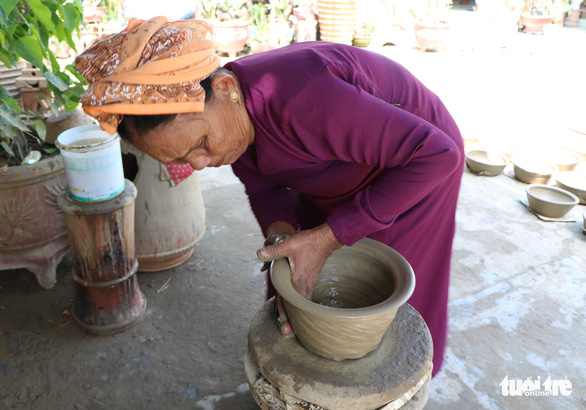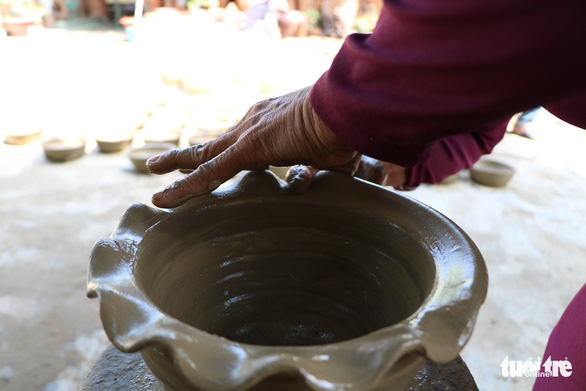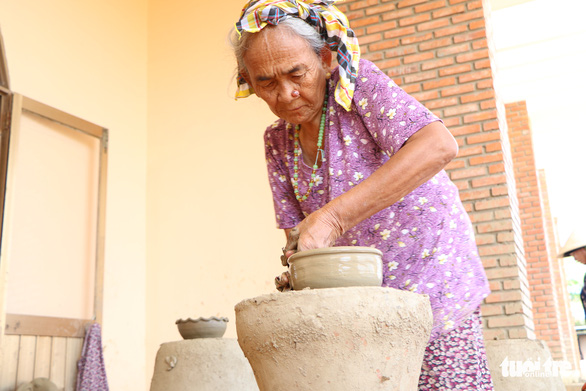Different from those in many other famous pottery villages across Vietnam, potteries made by the Cham people in Bau Truc Village in south-central Ninh Thuan Province feature a special method: walking around the products to shape them.
Located in Ninh Phuoc District, about 10 kilometers from the provincial capital of Phan Rang, Bau Truc is one of the oldest pottery villages in Southeast Asia and the ceramic making technique here has been listed as national intangible cultural heritage, according to the Vietnam National Administration of Tourism.
Bau Truc pottery items are made from clay from the Quao River mixed with sand.
Clay is collected from the river only once a year, each time lasting for half a month.
|
|
| A Cham woman shapes a pottery product in Bau Truc Village, Ninh Thuan Province, Vietnam. Photo: Duy Ngoc / Tuoi Tre |
Despite technological advances, the Cham people in Ninh Thuan still keep the tradition of making ceramics manually.
Artisans do not use a potter’s wheel to shape the clay but they walk around a clay block and form it into the shape they want with their skillful hands.
After shaping, raw pottery is exposed to the sun for four to six hours; and craftsmen then use a piece of earthenware or bamboo to make it shine.
|
|
| A Cham woman shapes a pottery product in Bau Truc Village, Ninh Thuan Province, Vietnam. Photo: Duy Ngoc / Tuoi Tre |
The craftsmen do not use kilns to bake pottery, burning only straw and dry wood.
This way makes Bau Truc water jars keep the water inside cool.
Bau Truc potteries have a natural reddish-brown or yellowish red, red pink, dark gray, and brown streaks which are characteristic of Champa culture.
The founder of the village is Poklong Chanh, who taught female villagers pottery making.
Every year local people still hold worshipping rituals to commemorate him.
|
|
| A visitor poses with a pottery product in Bau Truc Village, Ninh Thuan Province, Vietnam. Photo: Duy Ngoc / Tuoi Tre |
Since 2000, in addition to items often used in daily life such as earthen pots, earthen stoves, and traditional cake molds, the Bau Truc pottery village has also produced many art ceramics, including goddess statues, interior decoration reliefs, and water vases.
As many households do not make pottery anymore, Bau Truc Village is trying to maintain the craft.
Visitors to Bau Truc Village can learn of the unique pottery making technique there and make a ceramic themselves.
Like us on Facebook or follow us on Twitter to get the latest news about Vietnam!






























